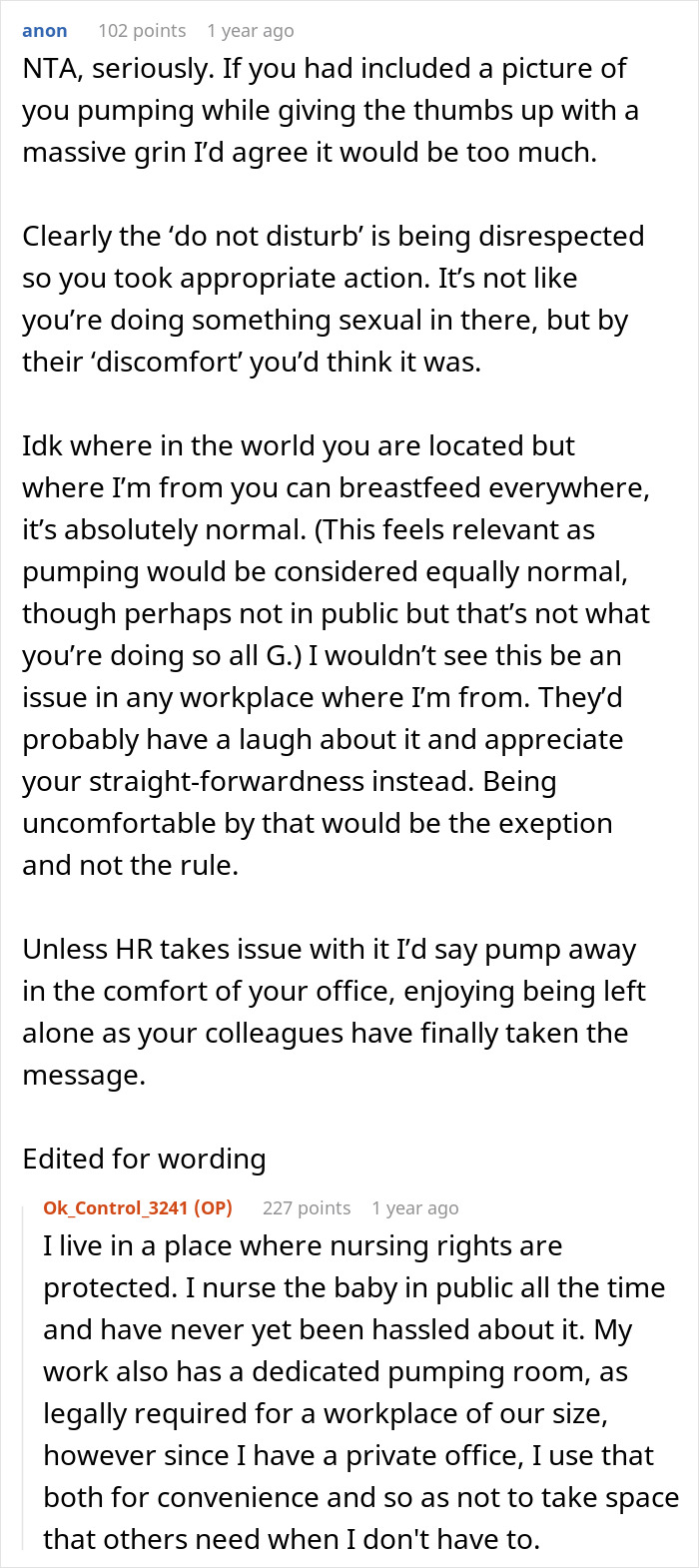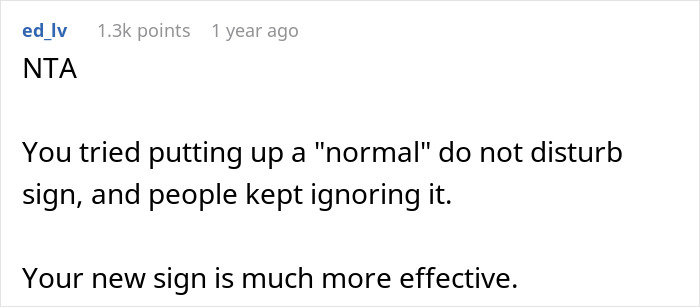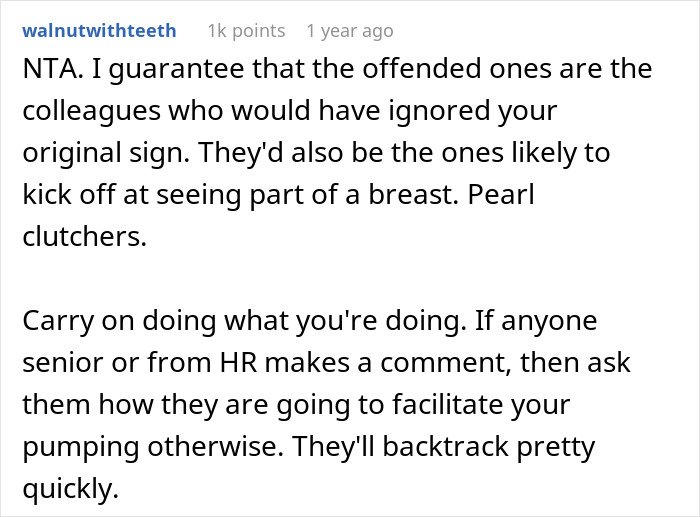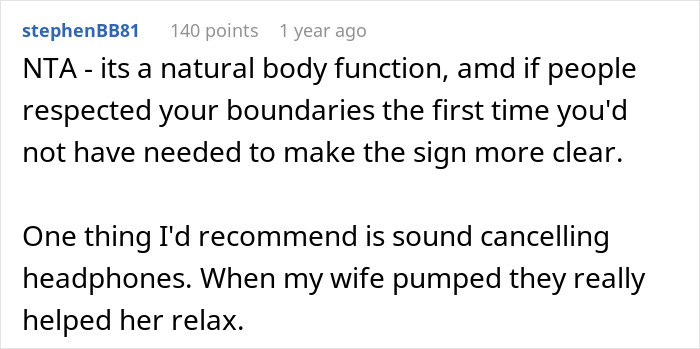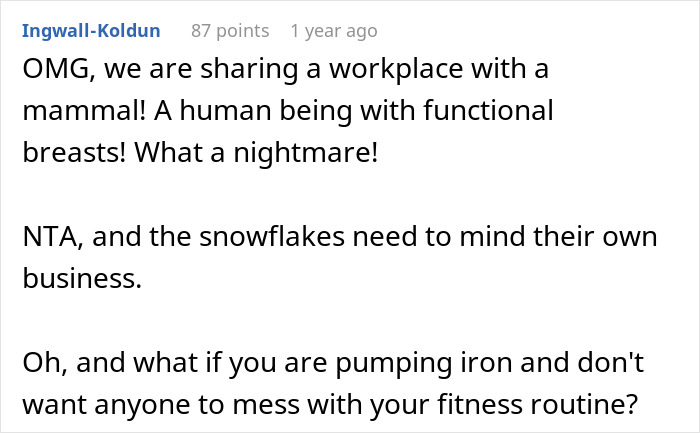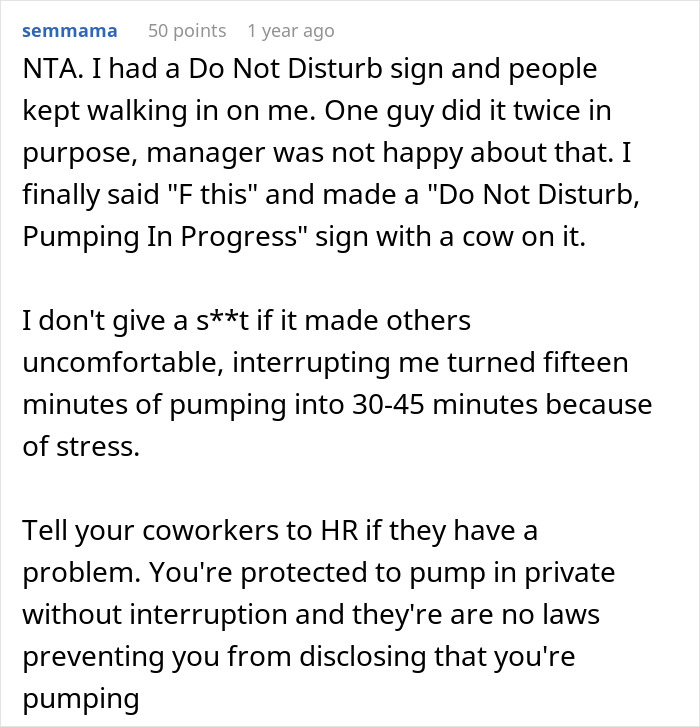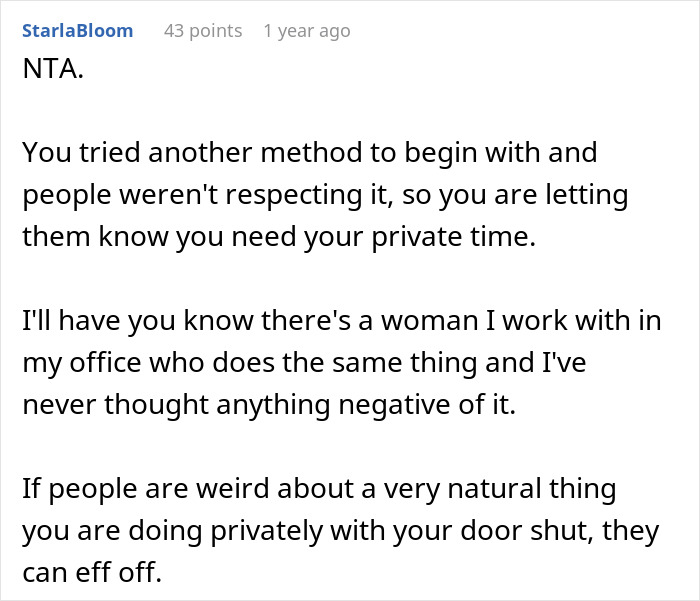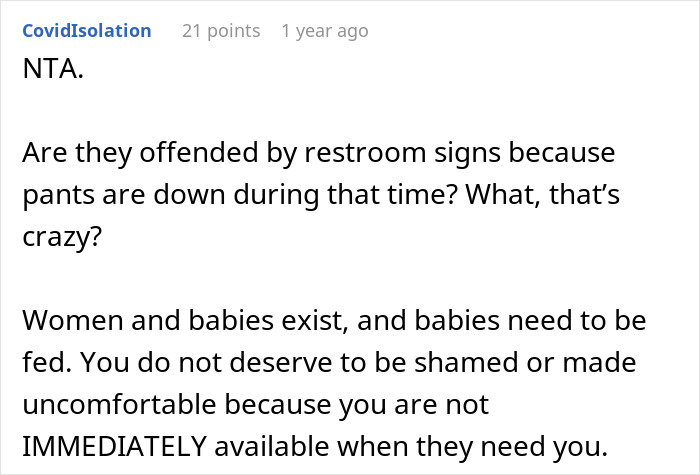Anyone working in an office knows that having kind, empathetic, and respectful coworkers is a godsend. On the other hand, even a few annoying and overly gossipy colleagues can really sour your workday and make you wonder whether other companies have better workplace cultures and managerial support.
One anonymous nursing mom turned to the AITA online community for advice. She revealed how she set some strict boundaries to stop her colleagues from intruding on her when she was pumping breastmilk. However, some of her coworkers were less than happy about this. Read on for the full story.
Bored Panda got in touch with Jaime-Alexis Fowler, the founder and executive director of the non-profit organization ‘Empower Work.’ She kindly shared her thoughts on what workplace leaders can do to better support new moms who return to work. You’ll find the insights she shared with us as you read on.
Some new mothers can have a hard time going back to work because of the way their colleagues behave around them

Image credits: By s_kawee (not the actual photo)
One nursing mom opened up about how she had to enforce stricter boundaries to stop her coworkers from interrupting her during her breaks
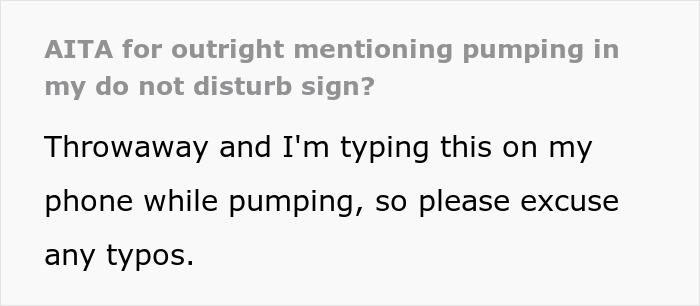
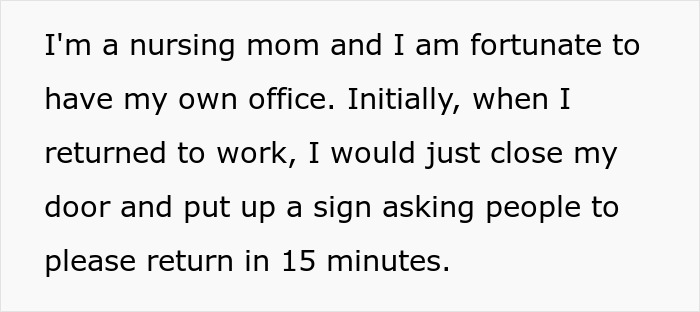

Image credits: By Zinkevych_D (not the actual photo)



Image source: Ok_Control_3241
Great managers listen to their employees’ needs and worries and act on that information
According to Fowler from ‘Empower Work,’ the best managers remove barriers for their teams and advocate for their needs.
“In the case of supporting new moms who return to work, starting from a place of listening—what does the person need, what are they worried about—and then acting on that information. And even better, do that before they go on leave,” she told Bored Panda in an email.
Fowler gave an example from when she was pregnant with her first child. She opened up to us that at the time, she was nervous to disclose the fact at work. However, the leadership was incredibly supportive and empowering.
“I put together an entire plan for the remainder of my pregnancy and for my leave that I brought to the meeting with my manager. As I shared the news, he told me to put down the plan and let’s just celebrate for a moment. That this was wonderful news and I didn’t have to worry about the plans for it. It was a small act that meant a lot,” she said.
“A few months later, a fellow mom reached out and alerted me that there wasn’t a designated pumping room. It wasn’t something I’d thought to even check in about! I hadn’t been a mom before! I immediately checked in with leadership, and they set one up. That pre-work enabled me to return to work feeling assured that my manager had my back, colleagues had my back, and the organization did too,” she said.
Anyone in need of support when facing toxic and harmful situations at work can reach out to the team at ‘Empower Work.’ You can text or start web chats with trained peer counselors at 510-674-1414 or www.empowerwork.org. The service is both confidential and free.

Image credits: annazzhuk (not the actual photo)
Many pregnant women and new moms face discrimination in the workplace
Referring to recent research that surveyed over 24k parents, People Management reports that 52 percent of mothers have faced some form of workplace discrimination. In fact, a fifth left their jobs after these discriminatory experiences.
Furthermore, 64 percent of pregnant women revealed that their coworkers or bosses had made hurtful comments about their appearance. On top of that, 10 percent of parents said that they were bullied or harassed while pregnant or after returning to work.
Seven percent stated that they lost their job as a result of getting pregnant: they were either made redundant, fired, or felt forced to leave after asking for flexible working hours for health reasons.
Research conducted by Quality Logo Products found that the vast majority (90%) of employees working in the United States have a colleague who annoys them. In the meantime, over half of the respondents (57%) surveyed said that they either thought about quitting or actually left their jobs because of annoying coworkers.

Image credits: drazenphoto (not the actual photo)
Some of the most annoying things that colleagues can do is interrupt others, overshare, and steal credit for others’ work
The three most annoying coworker habits include interrupting others, taking credit for other people’s work, and oversharing.
Career coach Susan Peppercorn told CNBC that you should politely call attention to the issue if you have a chronic interrupter on your hands. For instance, let’s say that another employee keeps cutting you off during a meeting. You could ask them to let you finish before you give the floor back to them.
Some interrupters can have a large ego and be very prideful. In that case, confronting them directly could be perceived as rude or even hostile by some. In that case, you could use that to your advantage. Say, if there are some particularly shy staff members on your team who struggle with speaking up for themselves.
Peppercorn suggests tackling both issues at once and telling the chronic interrupter something along the lines of: “I notice there are people on our team who don’t speak up a lot—could you help boost the voice of some of those people at our next meeting? So if someone interrupts [insert name here], could you help her get the floor back?”
If you’re dealing with glory hogs, it’s imperative that you clearly explain what your input in the project was. It really helps if you have a paper trail (digital or otherwise) of your contributions so you can submit them to your manager at your next performance review.
As for colleagues who like to (over)share their opinions about sensitive and emotionally charged issues, you can try pivoting to another topic or leaving the conversation entirely. Nobody is forcing you to respond.

Image credits: Kindel Media (not the actual photo)
A person who respects you as an individual will also respect your boundaries
How someone reacts to even the most innocent of boundaries can divulge a lot about their character, values, and relationship with other people.
Case in point, someone who ignores simple do-not-disturb signs probably doesn’t respect their colleagues very much.
Sure, there are deadlines to meet. And workplace emergencies do happen. But oftentimes, genuine emergencies are rare. It’s not like waiting 15 minutes for your colleague to finish their break will fracture the very foundations of the company.
Furthermore, it seems somewhat unreasonable to be upset that a coworker provides a reason why it’s important not to disturb them. There is nothing ‘embarrassing’ or ‘taboo’ about pumping breastmilk or nursing a child.
These are completely natural things to do after you have a child and go back to work. And in this day and age, employees and companies who discriminate against working moms can open themselves up to very painful lawsuits.
Have you ever had to deal with overly intrusive or annoying colleagues at work, dear Pandas? How did you handle the situation? How would you deal with coworkers who ignore boundaries and gossip in the office? If you have a moment, we’d love for you to share your thoughts on the topic. Feel free to do so in the comments!
The author later answered some questions raised by her readers
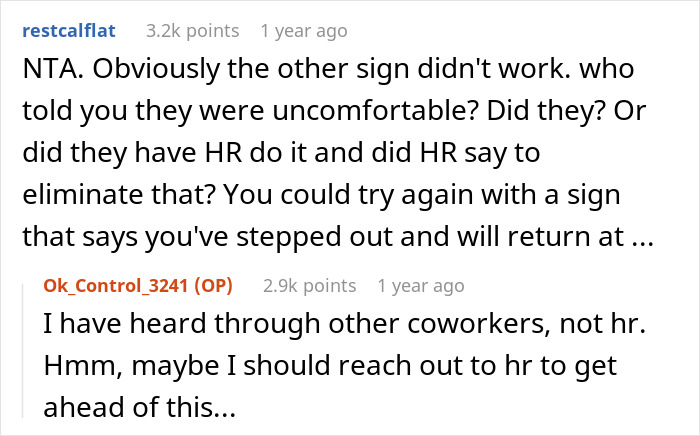
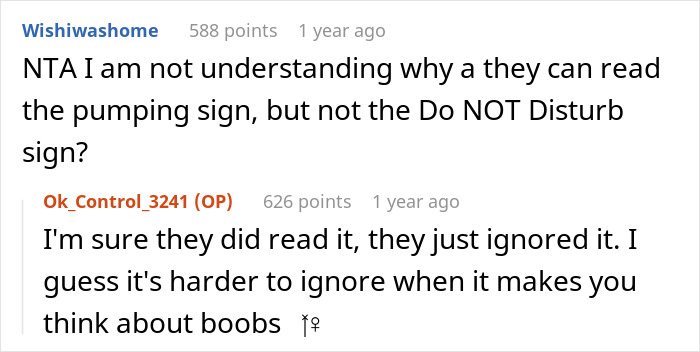
Most internet users were highly supportive of the mom. Here’s their take on the entire workplace drama
